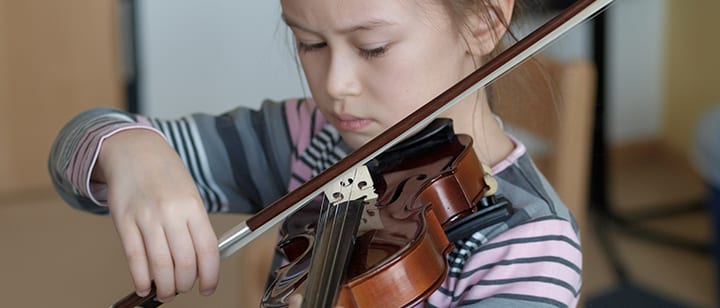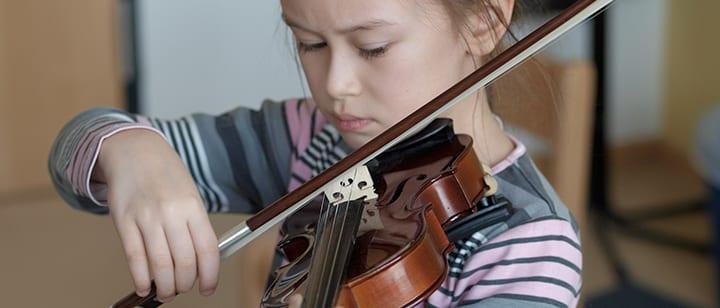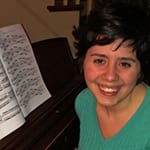 If playing the violin has always been a dream of yours, congratulations on taking that first step and signing up for private lessons! Here, Philadelphia, PA teacher Gina P. shares what to expect and how to prepare…
If playing the violin has always been a dream of yours, congratulations on taking that first step and signing up for private lessons! Here, Philadelphia, PA teacher Gina P. shares what to expect and how to prepare…
Congratulations! You (or your child) have decided that you’d like to begin playing the violin, and you are taking that desire seriously by booking some lessons. That’s great! You’re starting down a path that leads to the joys of making music, and you’ll get boosts in coordination, finger strength, creativity, self-confidence, self-discipline, and right-brain power along the way. So, let’s get started! Here’s what you can expect at your first violin lesson:
Getting to Know You
You’ll spend a few minutes getting to know your new teacher and sharing some information about yourself: What are your interests? Have you studied music before? What kind of music do you like? If you’re still in school, what grade are you in? Things like that. You want to start building a rapport with your teacher, and feel out whether you like working with this person. Having the teacher that’s the best fit for you makes a huge difference in how much you learn and how enjoyable your lessons are.
Next you’ll want to set some goals: what genre(s) of music are you interested in playing? Any pieces in particular? Can you read music now, and if not, would you like to be able to? I generally feel like progress takes whatever amount of time it takes (which can be sped up, depending on how often and how effectively you’re practicing), but it’s never a bad idea to make clear where you’d like to be headed.
Getting to Know Your Violin
Next, you’ll go over the names of the different parts of the violin and the bow, and talk about how to care for each. From scroll to end button and tip to heel, you’ll want to get familiar with your new instrument as well as its accoutrements, a cake of rosin (rubbed on the bow and used to increase friction between the bow hair and the violin strings) and a shoulder rest.
Playing the violin also includes learning how to take care of it: wiping the strings and the body down after each time you play, treating the delicate bow tip and hair with special care, and storing it properly in its case.
You might also learn about tuning the violin at your first lesson, or your teacher might take care of that in the beginning. Either way, you’ll discuss to which pitches each string should be tuned, and how to tell if a string is sharp (higher) or flat (lower) from its designated pitch.
Now you know the different parts of the violin, and how to take care of it. Next, you’ll want to pick it up and talk about how to hold it — where to situate it on your body, what kind of posture to adopt, and how to position and use your left hand to gently support the violin. It’s likely that you won’t start using the bow until a few lessons in, especially if you are a young student. But you want to make music! I’ve got good news for you: you can make sounds with the violin even without a bow, by plucking the strings with your right hand pointer finger. This is likely what you’ll do for a few lessons, learning as you go where to put down your left hand fingers to make different pitches.
Wrapping Up
That sounds like enough for one lesson! At the end of your first time together, you and your teacher can discuss what to work on for next time, and how to work on it, including how long and how often you should practice. Your teacher may use an exercise or song book in the first lesson, or in the subsequent lessons, or never, depending on whether you’d like to learn how to read music or not. You should write down whatever homework you have, and any important things you learned that you definitely want to remember later.
So there’s a general idea of what you can expect at your first violin lesson. Like learning anything new, it might be slow going in the beginning, but hang in there! You’ve started on an exciting and fulfilling musical journey that can provide you with a lifelong source of joy.
Gina P. teaches music theory, piano, singing and violin in Philadelphia, PA. She received her Bachelor of Arts from New York University, and her Bachelor of Music, Vocal Performance from Temple University. She has been teaching students since 2011. Learn more about Gina here!
 Photo by Wolfgang Lonien
Photo by Wolfgang Lonien
Suzy S.

